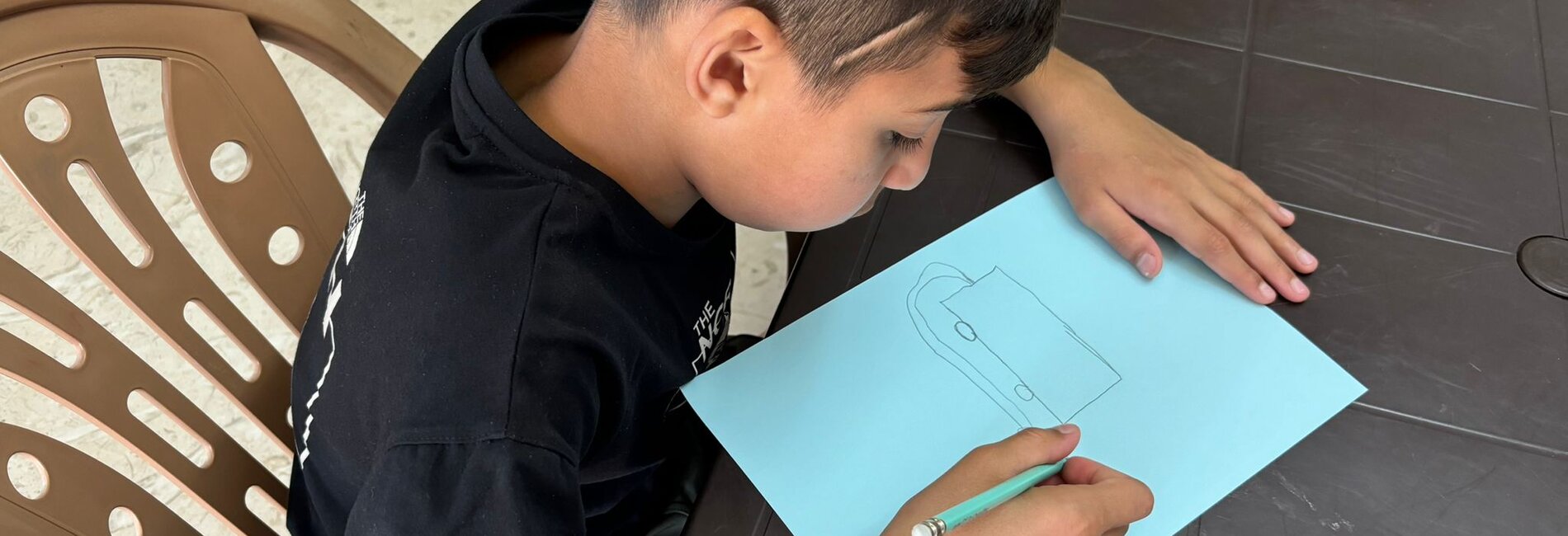Supporting the recovery of a boy who survived an airstrike
The situation in the northern West Bank continues to deteriorate amid ongoing operations carried out by Israeli forces in urban areas, movement restrictions, and settler violence. One of the affected areas, Tulkarm governorate, has seen repeated airstrikes, incursions, and the use of heavy weaponry in densely populated neighbourhoods.
The psychological toll of such an environment is profound, with many children exhibiting signs of trauma, distress, and disruption in their normal development.
Among those children is 11-year-old Kareem, whose life was turned upside down on 19 December 2024. On that day, an Israeli airstrike hit a car outside his home in Tulkarm Camp. The resulting shrapnel severely injured him in the head and leg and caused burns to his upper body.
The attack drove his family to flee the camp, leaving behind their home and livelihood.
With funding from the occupied Palestinian territory Humanitarian Fund (oPt HF), War Child Holland partnered with East Jerusalem YMCA (EJYMCA), a local non-governmental organization, to provide emotional support activities and counseling services for about 1,600 children in Jenin, Nablus, and Tulkarm.
Following Kareem’s surgery and the start of his physical recovery, an EJYMCA emergency response team subsequently provided psychological first aid and referred him for counseling. The EJYMCA counselor also met Kareem at home to assess his condition and emotional well-being.
The evaluation revealed deep psychological trauma. Kareem was struggling with recurring flashbacks, fear, sleep disturbances, aggression, low self-esteem, and a growing sense of hopelessness.
“I don’t want to live like this,” he told his counselor. “I want to go back to my camp, back to how life used to be. Everything now feels strange. I don’t even play anymore. I just sit and watch. I’m angry, but I keep it inside because I don’t want to hurt the people I love. I used to dream of becoming a football player… now that dream feels gone.”
Through regular counseling sessions, play-based techniques, and psychological support tools, Kareem began to recover, express his emotions, and reconnect with his peers. His relationship with his family, especially his mother, grew stronger as they supported him through his healing journey.
“I feel stronger, more confident, and calm,” he now says. “I walk now – even if it's on the heel of my foot – and I can finally play football. That makes me happy. I also love the games I have now; I play with my cousins and we're learning new ones together.”
Kareem dreams of returning to school and becoming a carpenter. “If school starts where we live now, I’ll go. My health has improved, and I want to study again… I used to want to be a policeman or a football player… now I know what I really want – I want to be a carpenter. But football will always be my hobby.”










